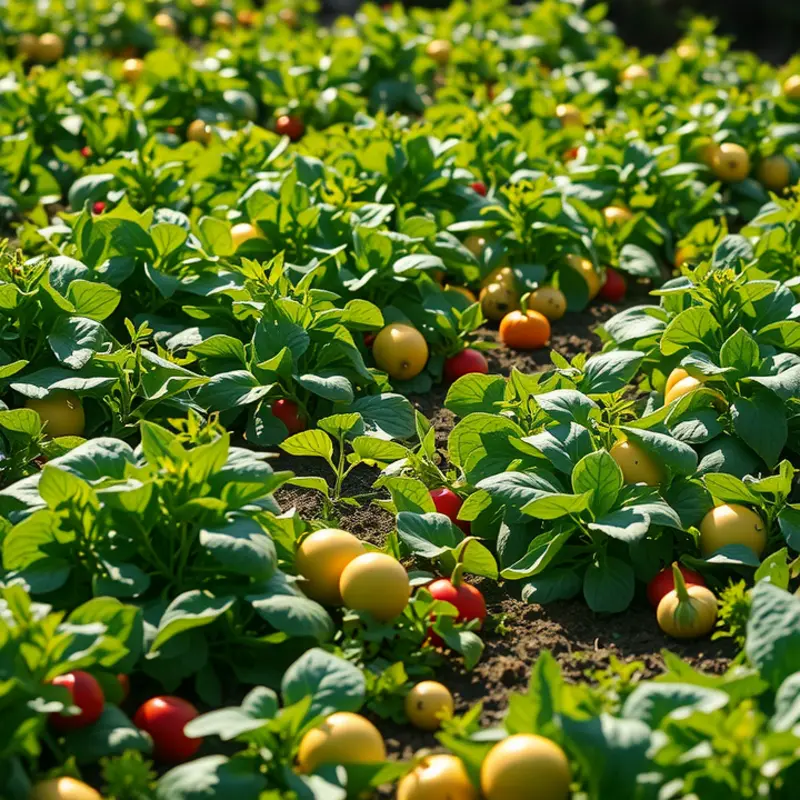While pickled foods have long been a staple in various cuisines, they are often viewed through a lens of skepticism regarding their health benefits. With numerous conflicting opinions circulating about their nutritional value, many individuals are left questioning if pickled foods are truly unhealthy. This article breaks down common myths surrounding pickling and delves into both the potential advantages and drawbacks of incorporating pickled foods into your diet.
The Nutritional Value of Pickled Foods

Pickled foods are often dismissed as unhealthy due to their high sodium content and acidic nature. However, when explored more deeply, they reveal a wealth of nutrients beneficial to our health. This chapter delves into the nutritional profile of pickled foods and their potential benefits when consumed judiciously.
First, let us consider the vitamin and mineral content. Pickled vegetables maintain many of their original vitamins and minerals because the pickling process, especially fermentation, preserves these nutrients. For instance, vitamin C and vitamin K, primarily found in green pickles like cucumbers and cabbages, remain substantially intact. Fermented pickles can sometimes even increase vitamin B levels, due to bacteria that synthesize these vitamins during fermentation.
Probiotics are another significant aspect of pickled foods, notably those fermented through lactic acid fermentation. These beneficial bacteria can contribute positively to gut health by enhancing digestion and supporting a balanced gut microbiota. Probiotics can help fend off harmful bacteria and bolster your immune system. For those interested in exploring plant-based sources of probiotics, check this non-dairy probiotics guide for more information.
Beyond probiotics, pickled foods also hold prebiotics, which are non-digestible fibers that feed probiotic bacteria. Foods like pickled onions and garlic are rich in prebiotic fibers, fostering an environment in which beneficial bacteria can thrive.
The pickling process can impact the texture and flavor of foods but does not significantly diminish their nutrient composition. However, it’s crucial to be aware of the sodium content. Salt is used in the pickling process to create a brine in which vegetables are submerged, acting as a preservative. High sodium intake can contribute to increased blood pressure and cardiovascular risk. Thus, moderation is key to incorporating pickled foods into your diet without adverse health effects.
Despite concerns about sodium, pickled foods can fit into a healthy diet, particularly when made at home. Homemade pickles allow for sodium control, and recipes can be adjusted by substituting with herbs and spice blends, reducing the need for excessive salt.
Finally, though pasteurized pickles lack live probiotics due to the heating process that removes bacteria, they still retain their flavor and some nutritional benefits. They can be a part of a varied diet, offering a unique tang and satisfying crunch that may encourage more vegetable consumption overall.
In conclusion, pickled foods, with their high vitamin and mineral content, probiotics, and unique flavors, do have health benefits when enjoyed in moderation. When you choose wisely and balance your consumption with other nutrient-dense foods, pickles can be a delightful and health-supporting part of a varied diet.
Potential Drawbacks of Excessive Pickle Consumption

Pickled foods, while delicious and often full of beneficial probiotics, can present certain drawbacks, especially when consumed in excess. One of the most prominent concerns is their high sodium content. Pickling processes commonly use salt as a preservative, and too much sodium in the diet can lead to hypertension and increased risk for cardiovascular diseases. Excessive sodium intake may also contribute to bloating and water retention, which could be uncomfortable for some individuals.
Another issue is the acidity of pickled foods. The pickling process often involves vinegar or other acidic substances, which can aggravate gastroesophageal reflux disease (GERD) or cause discomfort for individuals with sensitive stomachs. If you are prone to heartburn or acid reflux, moderating your intake might help mitigate symptoms. For further guidance on flavor additions without relying on acidity, check out our guide on flavor boosters without salt.
Pickled foods may also cause adverse reactions for certain individuals. Some people might experience allergic reactions due to spices or other additives used during the pickling process. Others, particularly those on specific dietary plans or with medical conditions that require stringent control of sodium intake, should exercise caution.
When including pickles in your diet, consider moderation and balance. It’s important not just to focus on the pickles themselves but how they fit into your overall dietary pattern. Pairing pickled items with foods rich in potassium, such as bananas, spinach, or sweet potatoes, can help counterbalance high sodium levels by promoting better electrolyte balance.
Opting for homemade pickles might also offer greater control over the ingredients used and can decrease the overall sodium content. By experimenting with different herbs and low-sodium alternatives, you can enjoy tangy flavors without the added salt.
Finally, consider monitoring your portion sizes. Instead of consuming large amounts in one sitting, integrate smaller servings of pickled foods into meals to enhance flavors without overwhelming your dietary intake of sodium and acids. This balanced approach ensures that you not only savor the taste but also support your long-term health.
Final words
Ultimately, pickled foods can be a nutritious addition to a balanced diet when consumed in moderation. They offer unique flavors and health benefits, thanks to their probiotic content and the nutrients found in fresh vegetables. However, it’s essential to be mindful of sodium levels and potential additives in commercial products. As with all foods, the key lies in moderation and mindful consumption. By understanding both the benefits and potential drawbacks, you can confidently incorporate pickled foods into your meals.








